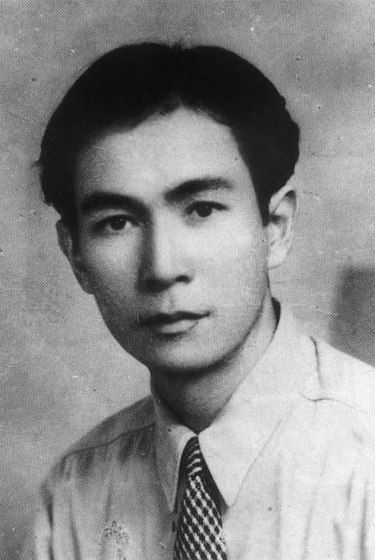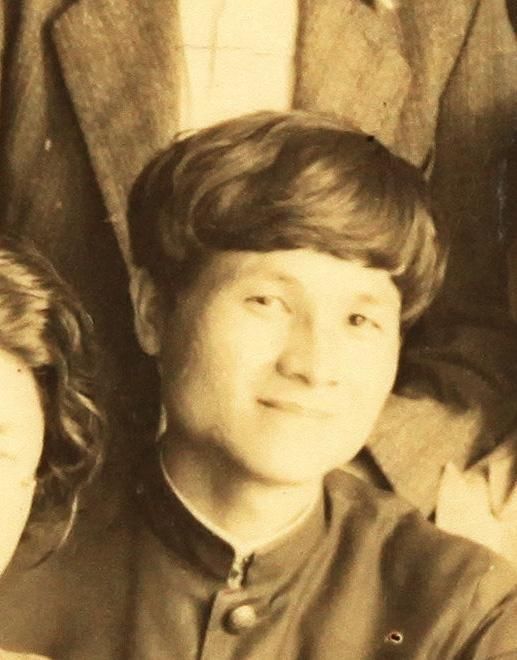Taiwanese essay: Who killed Weng Nao? (one)
Snacks asked me where did Showa go last week? In fact, I have been poisoned and lost, but I still come to post after all. Thanks for the appetizer suggestion, this article has been slightly modified, and the suffixed label has been added to celebrate the new perimeter of appetizers! Follow, subscribe and share YA
😍😍 around the fireplace 😍😍 "Suffix" fake breakout room
During the Showa period (1930s-1940s), Taiwanese literary youth mostly hoped that their works could be published in Japanese art magazines: the so-called entry into the mainland (Japan) literary world.
In 1935, the short story "Father's Face" by Zhang Wenhuan, the eldest brother in Taiwan's literary world, was selected as No. 4 in the Japanese magazine "Central Public Commentary"; the handsome man Lu Heruo's short story "Ox Cart" was published in the Japanese magazine "Literary Review"; and our protagonist, Weng Nao , borrowed the short story "Xu Bo" and was selected as a masterpiece in the Japanese magazine "Literature and Art". He was 26 years old that year.

Why does Ong Nao attract my attention?
His short stories are poetic, fluent and somewhat eloquent, but can stop everything in the gray area of humor, wit and banter.
If Showa Wenqing wants to enter the Japanese literary world, it is standard to write about the oppression of Japanese colonialism and Taiwan's unique geographical and cultural landscape. In the 1930s, Japan's economic depression (Showa economic crisis) intensified reactionary ideas. At that time, Japanese Wenqing was anti-imperial and anti-war. , anti-capitalist, clearly leftist or Marxist, Weng Nao's "Xu Bo" wrote about Taiwanese customs, about the peasant and industrial classes, and about urban and rural development. These themes are all liked by Japanese literary circles, but no one is like Weng Nao. Handling Standard: Poetic, detached and critical.
The narrative of "Xu Bo" is very simple. It tells about the life of Xun Bo when he was 57 to 66 years old. Weng Nao entered the literary world by writing poetry, not only writing poetry, but also translating English poetry. Usually, the narrative of novels is often promoted by conflict. When the protagonist Chen Yousan first came to the town, he wanted to be admitted as a civil servant in one year and a lawyer in ten years, but he saw that no matter how hard the Taiwanese worked, the salary was far less than that of the Japanese, and it was difficult to get food and clothing. The country's lawyers are no exception, so he has to fulfill the responsibility of inheriting the lineage. He saw that there were several family members in his predecessor's family, and his life was difficult. At this time, he fell in love with the daughter of his colleague Lin Xingnan, but suffered from the family's poor financial situation and failed to propose marriage. , this is the conflict and turning point in the narrative, and Weng Nao is different, there is no clear conflict throughout, with poetic imagery, fortune teller's prophecy, throughout.
The fortune-teller said at the beginning of the novel that Xun Bo will not live to be 65 years old, but if he is still alive at 66 years old, he can live all the way to 100 years old, but he will not be able to marry a wife. After the prophecy, Weng Nao took us into the life of the uncle: the family did not smile every day, because the food was worse than that of the pigs, the place where they lived was dirty and broken, the mother and Uncle had trachoma, and the brother had malaria, but everyone was trying to survive. They all worked hard, and so did the villagers. "The recession hit him (they) with the peaks of the new high mountains." "Everyone in the village worked hard like a cow, and none of them was lazy, and also No one thinks about things other than life, let alone planning any conspiracy, but their faces no longer have bright smiles." And, "In the village, Lin Baozheng is probably the only one who can celebrate the New Year in the first month. (Baozheng is similar to the village chief during the Japanese occupation period). This is Weng Nao's criticism, and at the same time his detachment (perhaps humorous) lies in the fact that Uncle Shu worked so hard, poor, miserable and sick, but at the age of 65, he was about to die in a dream, and he still killed him to return to Earth , try to wake up. At the age of 66, he saw his fellow villagers die on the way to work, and he began to worry about how he would live to be 100 years old. The novel ends. Cleverly held high.
Wu Zhuoliu commented on Weng Nao's other short story "Arhat's Foot", which was published in the same year as "Xu Bo": "The writing is smooth and poetic. . The tragedy of the Arhats' family is unclear. Therefore, there is no aggressive force. It is like listening to a street speech filled with beautiful words. I am quite intoxicated when reading it. ” Weng Nao’s Boo Bo is vivid, with his luck (surviving the curse of a fortune-teller) and his sorrow (eye disease that cannot be cured). His criticism is hidden under the poetic and light brushstrokes, which is different from contemporary A writer who is scolded by Japanese noses is a new balance of aesthetics and political intentions. I thought of Alice Munro's short stories. She likes to write about people and things in the countryside. Every time she reads it, she always has a feeling of "This is life! This is love!" But what exactly did Munro want to say? What life lesson or revelation does she hope readers will gain? In fact, it is not important at all. Literature is not used to carry the Tao, and it does not necessarily have any function. When she won the Nobel Prize for Literature in 2013, the judges only gave this sentence: A true master of the form (contemporary short story master). suffice it to say.
In addition, the cause of Weng Nao's death is also very attractive to me: living in Tokyo, Japan in 1940, but no one knows how he died? Well worth a detective story! Next episode to be continued.

💃Personal Homepage | Working girl Jennifer
🖼 IG | Jennifer talks a lot
🎙 Listen to the latest Podcasts
💵 Support me appreciative citizen
Like my work? Don't forget to support and clap, let me know that you are with me on the road of creation. Keep this enthusiasm together!


